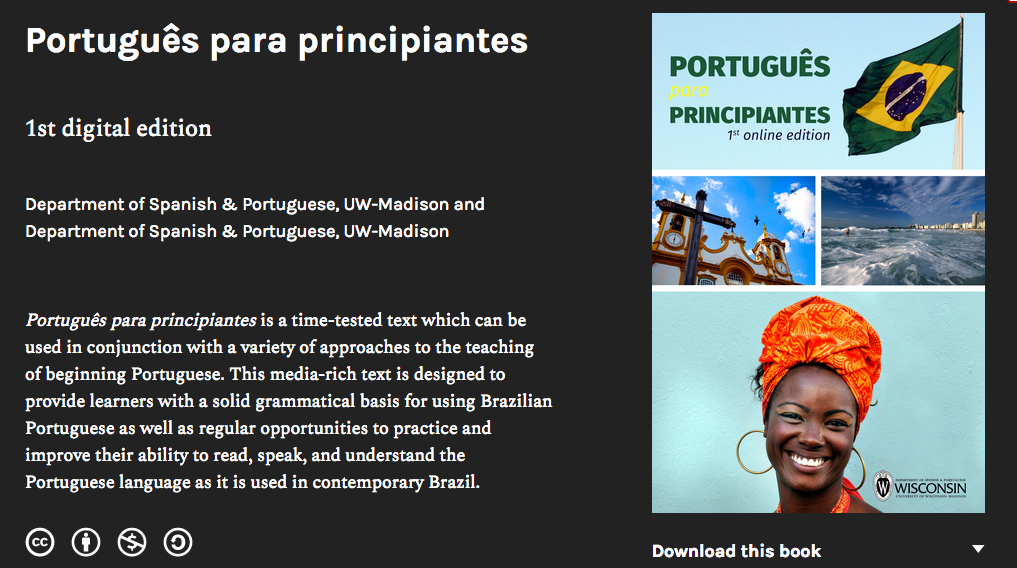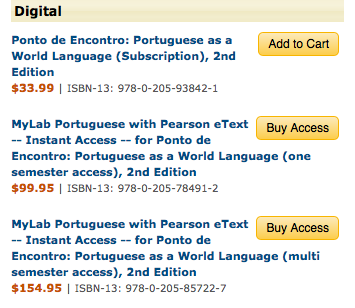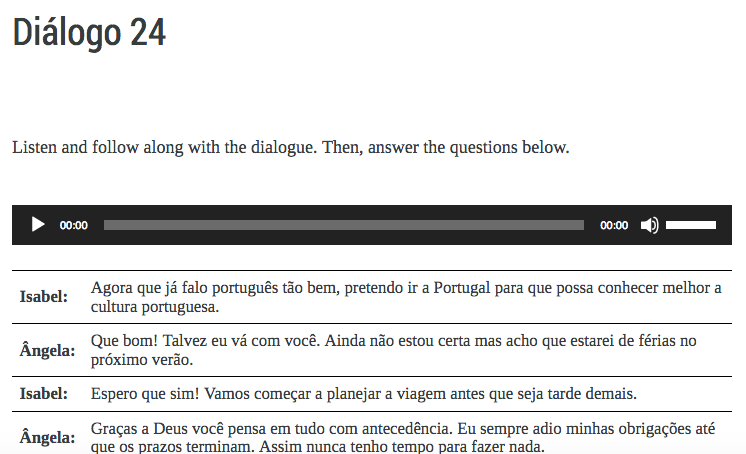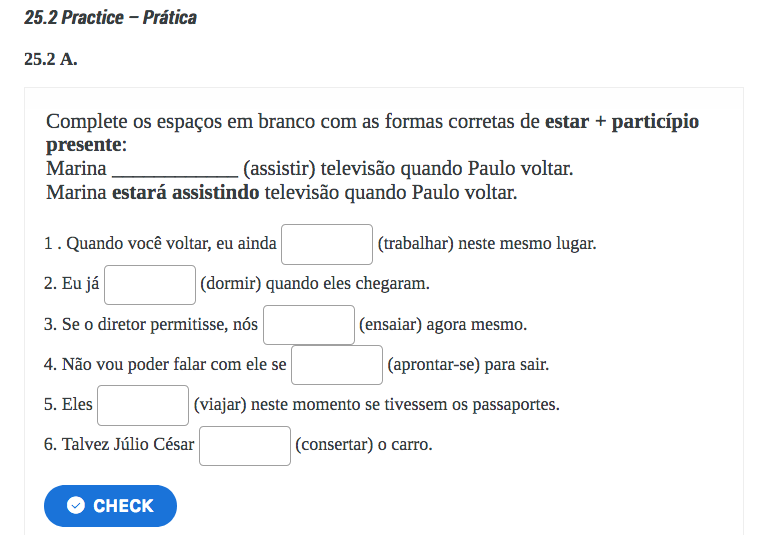
The language education industry, in particular for the more widely spoken languages, is a big one and has spawned all kinds of products ranging from official tests such as TOEFL and DELE, test preparation books and websites, subscription based online courses, travel abroad private language training, and so forth. If you are taking a language course in either K-12 or higher ed, you likely have a textbook, since language teaching often suffers from a few constraints, one of them being that language ‘experts’, which is code for teachers who speak the target language fluently and who can also teach it – are in short supply. Textbooks bridge that gap and since they usually come with exercise manuals, CDROMs or companion websites, they are basically a course in a package.
This comes at a price to the student or, in the case of K-12, the school district. For example, Pearson’s Introductory Portuguese text Ponto de Encontro is structured like most language textbooks adopting a communicative approach with a focus on grammar and vocabulary building, authentic language examples via dialogues, and tidbits about culture. This edition comes in at $160 USD for the print edition if you want the My Language Lab access (that’s where you get the multimedia that is basically essential and non-optional) or $111 without (pointless). There is a vast and confusing array of package options provided by Pearson ranging from $180-220 USD and let’s not forget that the digital renting options start at $100 USD for a semester or $155 for multi semester.
That’s why coming across an open Intro to Portuguese text built in Pressbooks is big news. Português para principiantes from University of Wisconsin-Madison is really nice proof that you can provide all of the above in a much more accessible (and less confusing) package to students. There’s lots of embedded audio, interactive exercises, and the usual content you’d see in a communicative approach language textbooks, the bonus being you don’t need an access code to the My Language Lab to get them. For me the possibilities that Pressbooks is providing here is a complete game changer, and I would suggest that this is one area of open textbooks and OER in general that open advocates and language educators would be well served to focus on.



Provide Feedback
You must be logged in to post a comment.